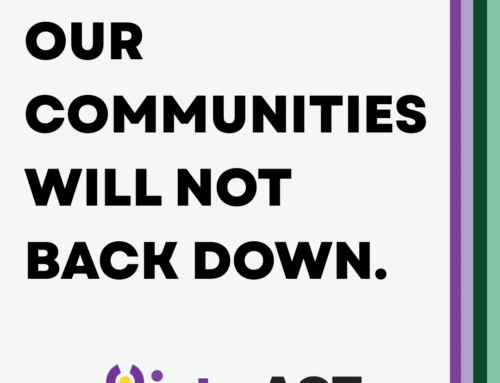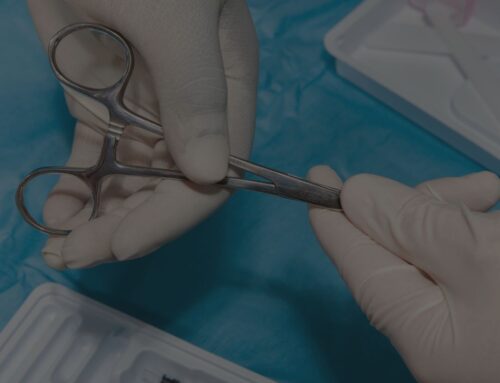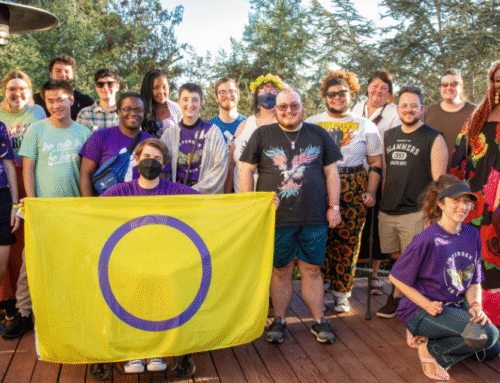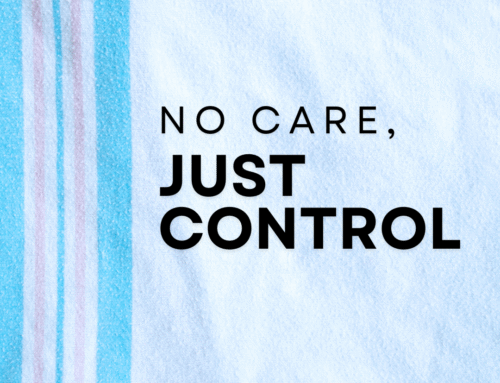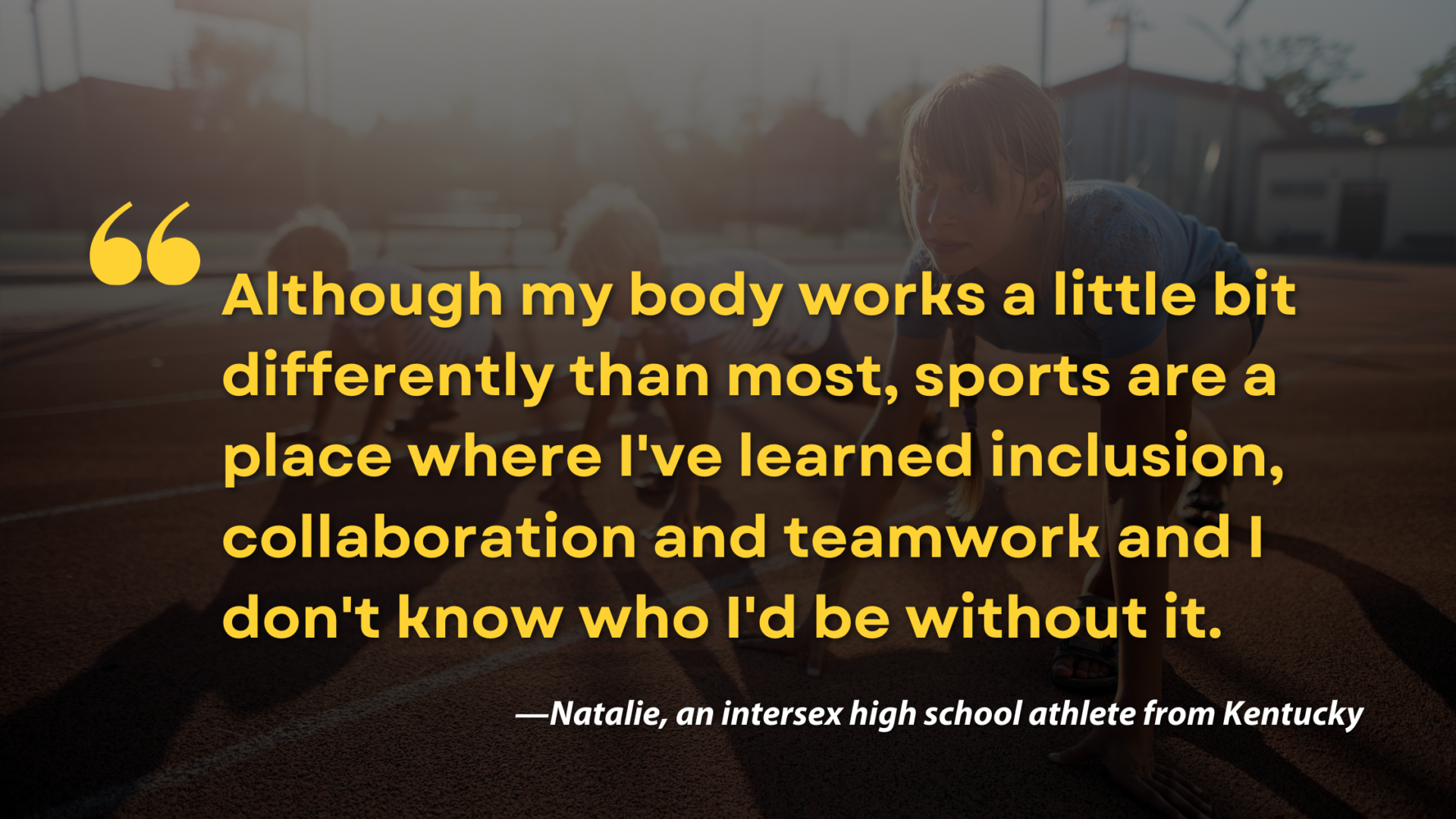
Intersex students deserve the right to play sports with their peers—like any other student. They deserve the fun, confidence, and friendship that school sports can provide. Two newly-introduced bills in Congress that would restrict sports access, H.R.28 and S.9, are questioning those rights. If the bills become law, some intersex students may lose access to school sports altogether.
Like many statewide bills, these bills also fail to understand that sex and gender are complex. H.R.28 and S.9 determine a student’s sex by “reproductive biology” and “genetics at birth” and demand that students participate in sports categories aligned with their sex. But it is unclear how these will be interpreted for intersex students, who have bodies that don’t fit neatly into “male” and “female” categories based on their biology and genetics.
Especially concerning are questions about how a student’s sex would be “verified,” and who decides whether a student is “female enough.” Any enforcement of these bills is incredibly threatening to the privacy and safety of student athletes, especially for those in K-12 grades. The risk of harassment and discomfort may only chase more intersex and transgender students out of sports.
We asked several interACT Youth who are current or former athletes in school to share their own stories, to be read in Congress. Read what they have to say, and contact your legislator to encourage them to vote no on H.R.28 and S.9.
Natalie
Natalie is an intersex high school athlete from Kentucky.
Like most kids I started sports to have fun. I started track my fifth grade year, not knowing that I was intersex yet, just an 11 year old girl with a lot of energy. I fell in love with my sport and it slowly but surely became a big part of who I am today. About a month after I started high school I was diagnosed with androgen insensitivity syndrome. This means that even though I was given XY chromosomes, I developed phenotypically female and although my blood tests show high testosterone levels, my body is incapable of using it. The diagnosis was a bit of a shock at first, but over time I learned that even though it seemed like the biggest part of my life, I was the same person I was before being diagnosed which meant I still loved sports. The routine of sports became a way to deal with the change, something positive for me to focus on. Since being diagnosed, track has become even more important to me because it’s something familiar and I have built such a strong support system through it. Although my body works a little bit differently than most, sports are a place where I’ve learned inclusion, collaboration and teamwork and I don’t know who I’d be without it. Intersex kids have already gone through so much, which is one more reason it’s so important to include us in athletics.
Allen
Allen is an intersex and transgender highschool swimmer from Utah.
Sports have always been a large part of my life. I grew up dancing and swimming, even playing soccer and baseball for a short time. Sports have made my life infinitely better over the years; they’re an integral part of maintaining a healthy lifestyle for me and managing many of the physical issues I have. They help me connect with people my age in a way I would not be able to otherwise. Me being comfortable and feeling safe, free to be myself are integral to my enjoyment of sports and my continued participation. I know many kids that are turned off from sports because of how transphobic and intersexist they tend to be (I myself would have a much harder time deciding to join if I weren’t in a relatively accepting area). I want you to know the full extent of what we would lose with this ban.
You should also know intersexism and transphobia are already rampant in the sports community. I have been pulled out of a swim meet for needing to use a different outfit while swimming to help with my dysphoria, my scores wiped and points i would have contributed to my team scratched out. For me to try to compete against other boys, I would have to go through an unnecessary complicated process of hearings and meetings with officials that have proven to care more about what I wear than my comfortability in my sport. None of my fellow swimmers are this concerned over the “threat” I symbolize as a trans person to their fairness in the sport. They all just want to improve and have fun while doing it. We are the ones that pave the future of sports, why does Congress think it should take away our right to do that? There are many other ways to better balance teams than relying on what gender someone was assigned at birth, including skill levels, weights, heights, and many other things.
Nessa
Nessa is a former intersex child athlete from Maryland.
I was a clumsy shy kid in a small K-8 school, and my parents encouraged me to sign up for a sports team to help develop my lungs. I struggled with asthma as a kid, and it’s very important for children with respiratory illnesses to exercise regularly for our health. I played girls’ basketball for two years, and ran cross country for three. In the end, my time as an athlete did much more than help treat my asthma – it gave me an opportunity to make friends with other girls my age, it made my body stronger and healthier, and it gave me the confidence to know that I could overcome any challenge ahead of me if I worked hard for it. That’s what children’s sports are for! At the end of the day, playing a sport is about so much more than winning or losing a game. It is an important part of childhood, that gives millions of children the opportunity to learn collaboration, perseverance, and commitment to hard work.
Speaking from experience, hyperandrogenic women (women with naturally high testosterone levels) and girls are already made to feel different – ugly, strange, and unwelcome – in every area of life. From childhood, we are stripped of our right to belonging. But on the playing field, on the track, on the court, the way we look isn’t important. In team sports, it is being a part of a collective, of working as a group to accomplish something for all of you that matters. In individual sports, it is improving upon yourself and constantly working to be a better you than you were yesterday. I disagree with the belief that hormonal differences make athletes like me dangerous to compete with. Heck, it took me a full year of training to get my mile time below twelve minutes when I first started running! Trans and intersex kids should not be excluded from vital childhood learning opportunities on the basis of our bodies – they’re important for all kids, everywhere.
Hillel
Hillel is a former intersex neutrois soccer player from Florida.
I was personally thrilled to play soccer, and though it wasn’t always the best, I managed to enjoy it. I was a middle school kid and experienced friendship, fun and confidence. It makes my heart ache knowing nowadays people like me would be close to losing this opportunity just based on our sex and gender, and with negative effects to mental and physical health due to not doing affirming activities. I might not be able to play in men’s sports due to my assigned sex, or struggle to get chosen in women’s due to my hormonal or chromosomal sex.
Amelia
Amelia is an intersex NCAA Division I track athlete from Kentucky.
When I was in 7th grade, I joined my middle school track team and I was instantly hooked. I loved everything about it – the competition, the challenge of the sport, and most of all, the friends and community the sport brought me. I felt like I had finally found the place I belonged. Over the past eight years, track has brought me some of my most triumphant memories, like winning the triple jump at the state meet, as well as given me some of my dearest friendships. I cannot imagine what my life would be like today if 13 year old me had not joined the track team. However, the future of intersex people like me in sports is now uncertain, thanks to legislation like H.R. 28.
As an intersex person, this bill leaves me unsure of where I stand. I was born looking typically female and nobody knew I was anything but a typical little girl until several years later, when my intersex variation was discovered. When sex is vaguely defined as “a person’s reproductive biology and genetics at birth” as it is in this bill, where does that leave someone like me? Do my chromosomes or internal anatomy mean that I’ve been competing in the wrong category this whole time? This bill does not recognize the complexity of sex and gender, and I worry about the destructive consequences that attempts to enforce this bill would have for athletes, intersex or not, who will face invasive speculation and exclusion because their gender is questioned.
Devastated doesn’t even begin to describe how I would feel if my sport was taken from me because legislators decided I wasn’t enough of a woman. It would punish me for the way I was born and deny me the opportunity to realize my dreams for track. It would rob me of everything I have worked so hard to achieve and remove me from the teammates and coaches I love. Furthermore, it would tell intersex kids there is not a place for us in sports, one more area of our society where we are not welcome. I hope you will see the flaws of this bill. It dangerously oversimplifies the meaning of sex and gender, and would lead to the exclusion of athletes like myself. Being intersex already comes with enough challenges. Please don’t add another one. I urge you to reject this bill.
Intersex youth join sports for the same reason as any other student: friendship, fun, confidence, and comfort in their bodies. A denial of their right to participate in athletics, alongside increased scrutiny, harassment, policing and abuse this act would surely introduce for all students, will only chase more kids away from sports. Reach out to your Congressional representative and ask them to vote NO on H.R.28 and S.9.


